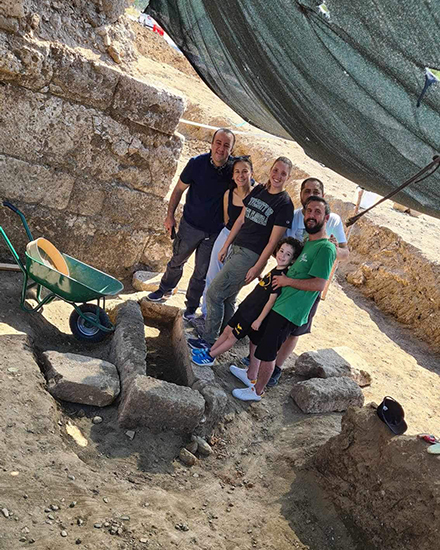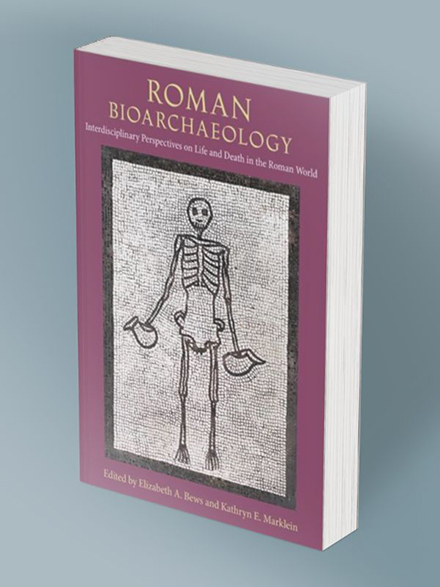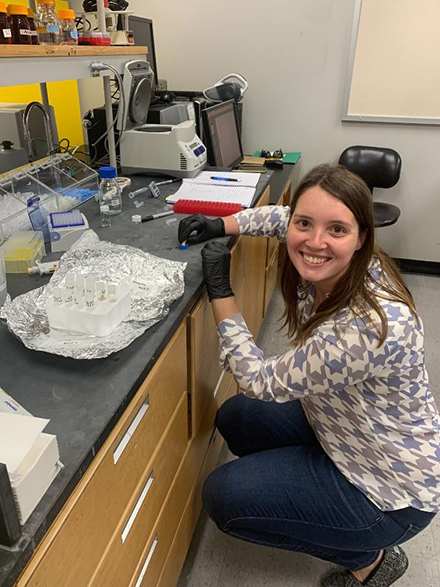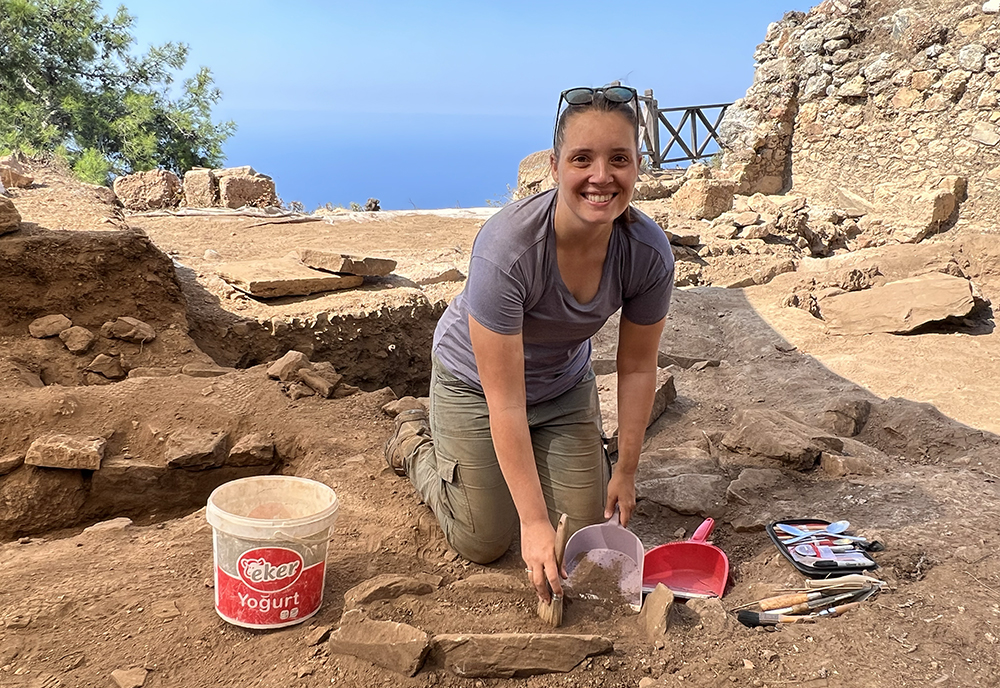Elizabeth Bews, a USF Presidential Fellow and PhD student in the Department of Anthropology, has received the John S. Freeman Scholarship in Public Archaeology to further her bioarcheological research in southwest Turkey. The scholarship, which was established by the department in 2014, is awarded to deserving students in memory of John S. Freeman, a student who received his MA posthumously after his battle with cancer.

Bews and group in the field at a dig site. (Photo courtesy of Elizabeth Bews)
“I am touched that I was selected for this opportunity, and I hope to use this money to contribute to the archaeological community in a way that John would have appreciated,” Bews said.
In the last three years, along with her continued work in Turkey, Bews co-founded the International Congress on Roman Bioarcheology (ICORB) in 2021 – an annual conference bringing together researchers working on sites across the Roman Empire to collaborate and share ongoing research. In addition, her first edited volume “Roman Bioarcheology: Interdisciplinary Perspectives on Life and Death in the Roman World,” will be published through University Press Florida in February 2025.
“Because of the Presidential Fellowship I received from USF, I was able to devote innumerable hours to ICORB and this new publication, both of which bring together scholars in Roman bioarcheology in a way that has not been possible until now,” Bews explained.
“My time at USF has been invaluable in allowing me to grow as an archaeologist and explore my interests within the wider scholarly community.”
Bews, however, wasn’t always a champion for bioarcheology. Starting as a double major in history and French at St. Olaf College in Minnesota, it was when a history professor provided the opportunity for Bews to travel to Turkey for an archaeological dig where she discovered her passion for the field. Since then, she has pursued every chance she has received to gain experience outside of the classroom by finding scholarships to participate in digs in Turkey, Bulgaria, and the U.S.
After graduating with her bachelor’s from St. Olaf College, taking a year abroad for a Fulbright scholarship, and earning her master’s from Cornell University, it was attending a bioarcheology field school in Romania that led her to pursue her doctorate at USF after meeting anthropology associate professor Dr. Jon Bethard, who now serves as her advisor.
Bews’ primary research focuses on demographic and paleopathological data from human remains found in southwest Turkey to understand how differential approaches to Roman rule predicated disparate health outcomes among local populations in the Eastern Roman Empire. The isotope testing funded by the Freeman scholarship will provide Bews with a record of the food consumed by an individual when they were alive, giving her an idea of what the Romans’ diets consisted of, which can lead to a better understanding of that person’s place in society – their status, the types of resources they had access to, and changes in cultural practices between childhood and adulthood.
“I have identified significant changes in the incidence of biological stress that individuals were experiencing between the Hellenistic and the Roman periods in southwest Turkey. However, it is impossible to tell from the bones alone what caused these stress responses in the skeleton. All I can say is that people in the Roman period experienced significantly more physiological stress than in the Hellenistic period,” Bews said.

Cover of Roman Bioarchaeology: Interdisciplinary Perspectives on Life and Death in the Roman World, Edited by Elizabeth A. Bess and Kathryn E. Marklein

Bews in the Proteomic Core Facility at USF extracting protein from tooth enamel for sex estimation. (Photo courtesy of Elizabeth Bews)
“Isotope analysis will help me to determine if changes in dietary patterns (dietary preferences, famine, sex or status-based differences in nutritional intake) from the Hellenistic to the Roman period are correlated with some of the pathological trends I am seeing.”
Bews’ advice for students pursuing the field of archaeology is based on her years
of experience: the work is a labor of love.
“Get as much experience as early as you can. Archaeology is often romanticized in
movies and the reality is much different than what you see on the screen. Archaeological
work often involves long hours in the hot sun with limited access to the outside world
during the field season – you truly have to love the work to pursue archaeology as
a career.”
Learn more about field school opportunities available through the Department of Anthropology.
